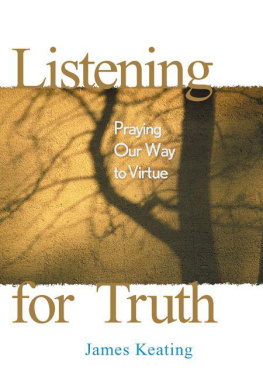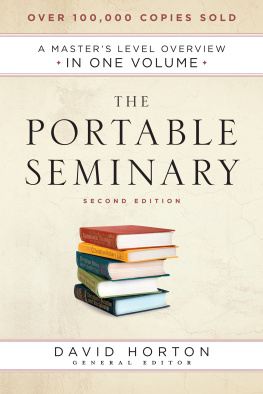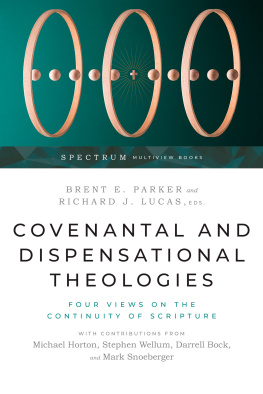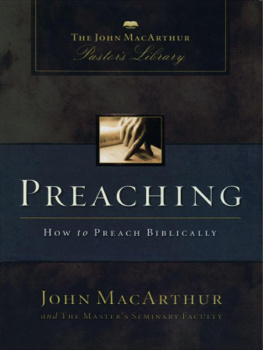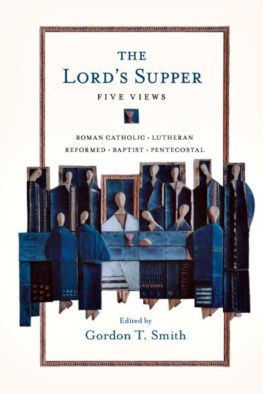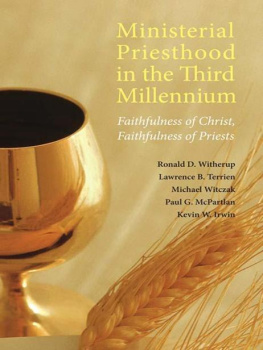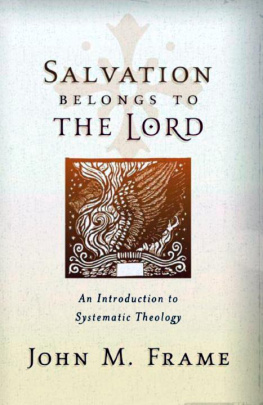
Contributors
Father Dennis J. Billy, CSsR, PhD, holds the John Cardinal Krol Chair in Moral Theology at Saint Charles Borromeo Seminary, Philadelphia, PA.
Perry Cahall, PhD, is Associate Professor of Theology and Church History in the School of Theology at the Pontifical College Josephinum, Columbus, OH.
John Gresham, PhD, is Associate Professor of Systematic Theology at Kenrick-Glennon Seminary, St. Louis, MO.
Deacon James Keating, PhD, is Director of Theological Formation at The Institute for Priestly Formation, Creighton University, Omaha, NE.
Father Thomas J. Lane, STD, is Assistant Professor of Sacred Scripture at Mount St. Mary's Seminary, Emmitsburg, MD.
Father Thomas McDermott, OP, STD, is Assistant Professor of Spiritual Theology and Director of Spiritual Formation at Kenrick-Glennon Seminary, St. Louis, MO.
Margaret M. Turek, STD, is Associate Professor of Systematic Theology at St. Patrick's Seminary, Menlo Park, CA.
NIHIL OBSTAT: | Father Joseph C. Taphorn, JCL |
IMPRIMATUR: | Most Reverend George J. Lucas
Archbishop of Omaha
April 26, 2010 |
THE INSTITUTE FOR PRIESTLY FORMATION
IPF PUBLICATIONS
2500 California Plaza
Omaha, Nebraska 68178
www.IPFpublications.com
Copyright May 26, 2010 by
The Institute for Priestly Formation, Inc.
All Rights Reserved. No part of this book may be reproduced, stored in a retrieval system, or transmitted by any means, electronic, mechanical, photocopying, recording, or otherwise, without the written permission of The Institute for Priestly Formation.
Printed in the United States of America
ISBN-13: 978-0-9843792-0-0
ISBN-10: 0-9843792-0-7
Scripture texts are taken from the New American Bible with Revised New Testament 1986, 1970 Confraternity of Christian Doctrine, Washington, D.C. and are used by permission of the copyright owner. All Rights Reserved. No part of the New American Bible may be reproduced in any form without permission in writing from the copyright owner.
Cover design by Timothy D. Boatright
Marketing Associates, U.S.A., Tampa, Florida
Cover photograph by Rosario Sanguedolce
THE INSTITUTE FOR PRIESTLY FORMATION
Mission Statement

The Institute for Priestly Formation was founded to assist bishops in the spiritual formation of diocesan seminarians and priests in the Roman Catholic Church. The Institute responds to the need to foster spiritual formation as the integrating and governing principle of all aspects of priestly formation. Inspired by the biblical-evangelical spirituality of Ignatius Loyola, this spiritual formation has as its goal the cultivation of a deep interior communion with Christ; from such communion the priest shares in Christ's own pastoral charity. In carrying out its mission, the Institute directly serves diocesan seminarians and priests as well as those who are responsible for diocesan priestly formation.
THE INSTITUTE FOR PRIESTLY FORMATION
Creighton University
2500 California Plaza
Omaha, Nebraska 68178
www.creighton.edu/ipf
Dedication
This book is dedicated to
Most Reverend Robert J. Carlson
Archbishop of St. Louis
for his continued and generous support of the mission of
The Institute for Priestly Formation.
Table of Contents
Deacon James Keating, PhD
Father Thomas McDermott, OP, STD
Father Thomas J. Lane, STD
Perry Cahall, PhD
Margaret M. Turek, STD
John Gresham, PhD
Father Dennis J. Billy, CSsR, PhD
Francis Cardinal George, OMI
Archbishop of Chicago

T his book contains the fruit of an Academic Seminar for seminary theologians that was sponsored by The Institute for Priestly Formation and held at Creighton University in Omaha, Nebraska. The Seminar, which is an annual event, seeks to gather seminary professors from around the country to contemplate and discuss how the teaching of theology in seminaries can flow from a more spiritual, rather than simply academic, foundation. Inspired by the U.S. Bishops' Program of Priestly Formation, these Seminars endeavor to explore how spiritual formation can be at the heart and core of seminary academic life.
The effort to explore seminary theology from a more contemplative perspective should strengthen the formation of a priesthood that is at once both spiritual and intellectual. For the Church to be true to who She is, lay people working in the world need spiritual leaders who have labored hard to understand how love for God intersects with love for truth. Such work is best accomplished under the leadership of theologians who have, themselves, labored at their desks, both interpreting texts and inheriting the encounter with God that these texts mediate. As Pope Benedict XVI has noted, "Knowledge of God is not enough. For a true encounter with him one must also love him. Knowledge must become love."
In this book, we see theologians who truly believe that spiritual growth in seminarians is not simply a facet of seminary formation but is to be established as learning's foundation. Seminary theologians have a dignity and vocation all their own. They are not university professors "in exile." Their responsibility of teaching theology is ordered toward the unique goals of seminary formation. They are to assist in forming emotionally mature priests who are receptive to the gifts of the Holy Spirit, in love with the truth of Church teaching, and compelled to deepen these realities in a contemplative study that elicits pastoral desire. Pope John Paul II captured the nature of this work by seminary theologians when he taught:
To be pastorally effective, intellectual formation is to be integrated with a spirituality marked by a personal experience of God. In this way a purely abstract approach to knowledge is overcome in favor of that intelligence of heart which knows "how to look beyond," and then is in a position to communicate the mystery of God to the people.
It is my hope that this book finds its way into the hands of seminary theologians everywhere so that they may use it as a resource for faculty development. I further hope that it will be a catalyst for discussion about the role of the theologian in the formation of priests, a role that takes seriously not only intellectual competency but also spiritual communion with the Mysteries of Christ. I am grateful to the book's contributors and to its editor, Deacon James Keating. With many other bishops, I am thankful for The Institute for Priestly Formation.
Notes
United States Conference of Catholic Bishops, Program of Priestly Formation, 5th ed. (Washington, DC: USCCB, 2006), 115.
Pope Benedict XVI visit to Gregorian University, November 3, 2006.
John Paul II, Pastores Dabo Vobis (1992), 51.
Deacon James Keating, PhD

E usebius first gave the title of theologian to John the Evangelist. This title reflected John's capacity to communicate the true doctrine of Christ. Theologians long to have the core of their being vulnerable to the coming of God in Christ.
Next page

